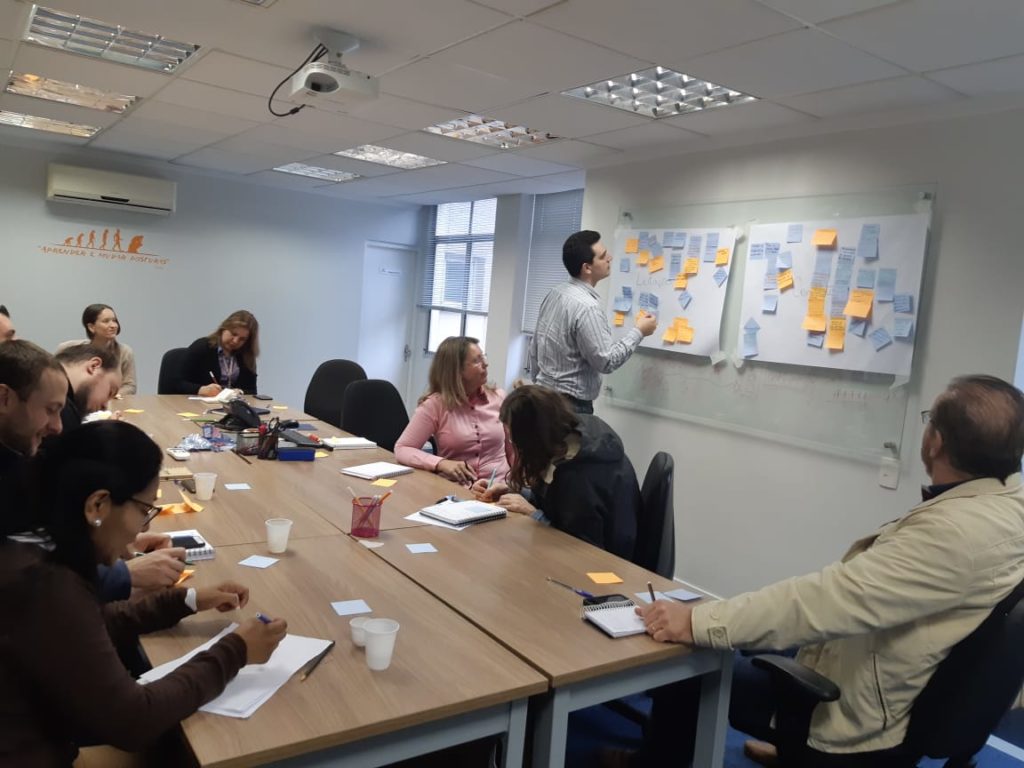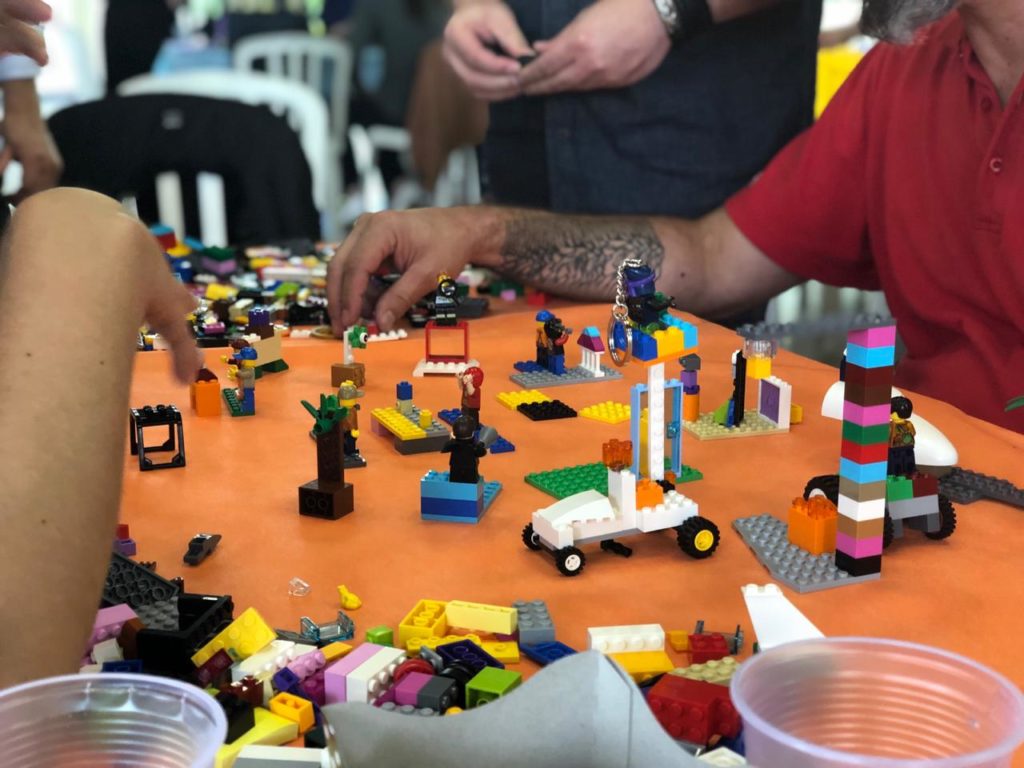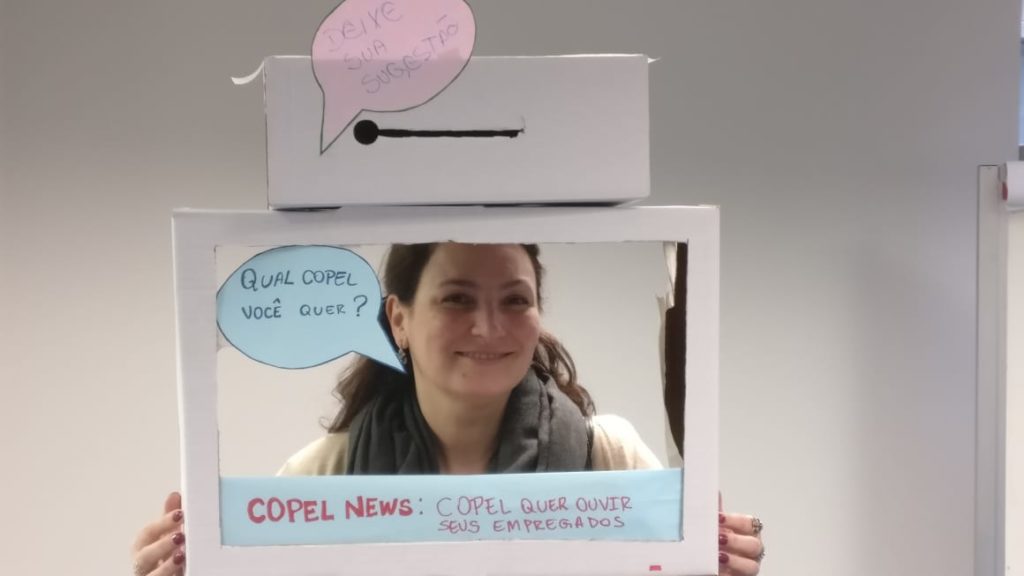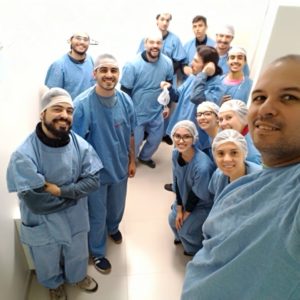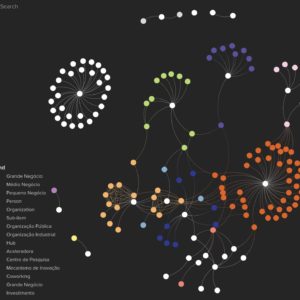Copel+ is an open innovation platform designed for a utility company in Brazil as part of a research project that focused on organizational learning. The company had just started the transition to smart grids and realized that it was necessary to nurture the regional entrepreneurial ecosystem to populate the grid. The platform sponsors believed that the ecosystem articulation would also push the digital transformation initiative inside the company and result in more efficient operations in the long run.

The platform was an experiment for a new way of working with potential business partners, such as startups. To maximize the absorption of startup innovation, the platform was designed with the participation of a handful of leaders who worked in different divisions of the company. These leaders were responsible for spreading the startup innovation culture across the company, using the methods learned while codesigning the platform. The success of these leaders in developing their own innovative projects, more than the actual business cases generated by the platform, served as an indicator of organizational learning and the absorption capability of the research project.
The platform had 6 components. The living lab, formed by the innovation leaders, designed 4 experiments: 1) an entrepreneur scholarship program for bachelor students at PUCPR university; 2) an online startup pre-accelerator for students of any Brazilian university; 3) a half-time acceleration cycle for selected teams who graduated from the online pre-accelerator; and 4) a full-time acceleration cycle at the utility company. Organizational learning was measured as the main result of these experiments.
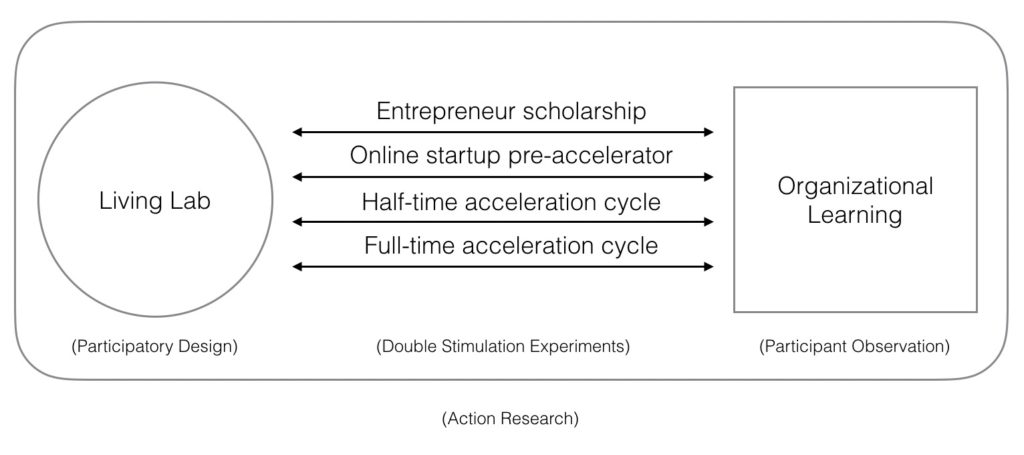
The online pre-accelerator system was designed to enable entrepreneurs to develop their own ideas into products and services, by following a customized journey based on their specific struggles.
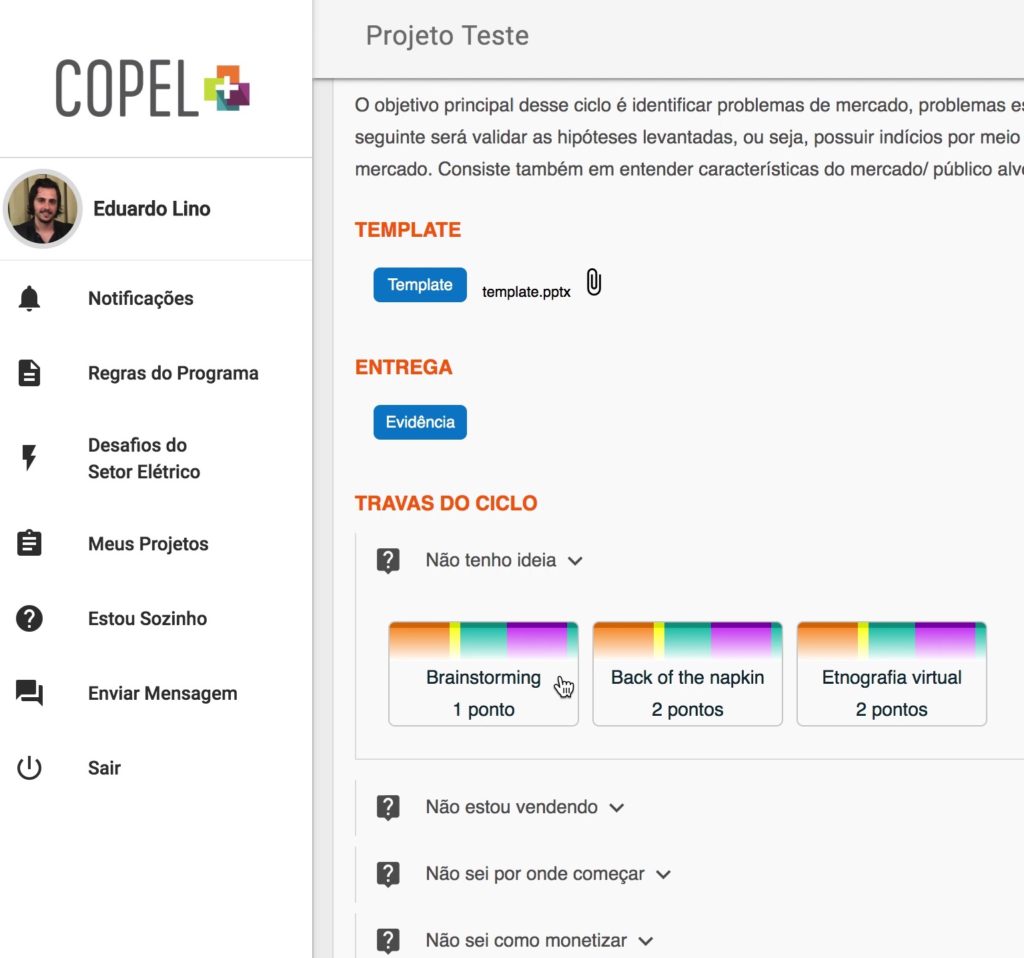
The system behind the online program was designed with the participation of its stakeholders using an experimental Lego Modelling Language for software development.
This online program was supplemented by a card deck to be played out during team meetings. Each card displays a method to untie a typical knot of entrepreneurial paths, such as “I don’t know the value of what I’m building” or “I don’t have enough resources to build my product”. Each card has a QRCode that connects to the associated page of the online program, where the entrepreneur can find detailed information on how to circumvent the problem. With this deck, the whole team can participate in planning what to do before committing to the online system. The deck is published under a Creative Commons license.
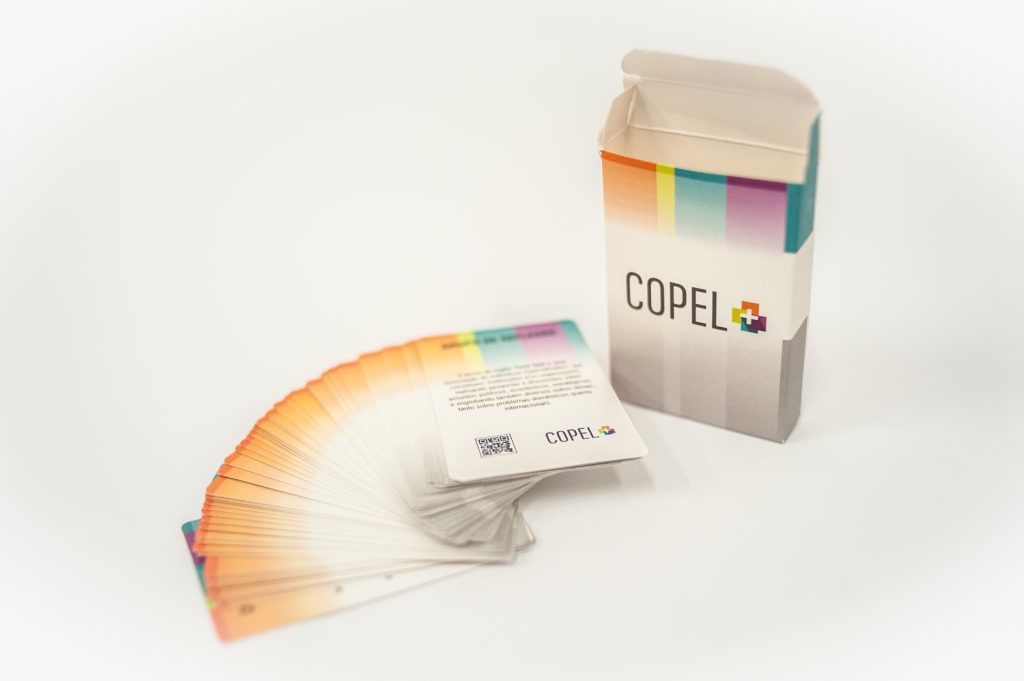
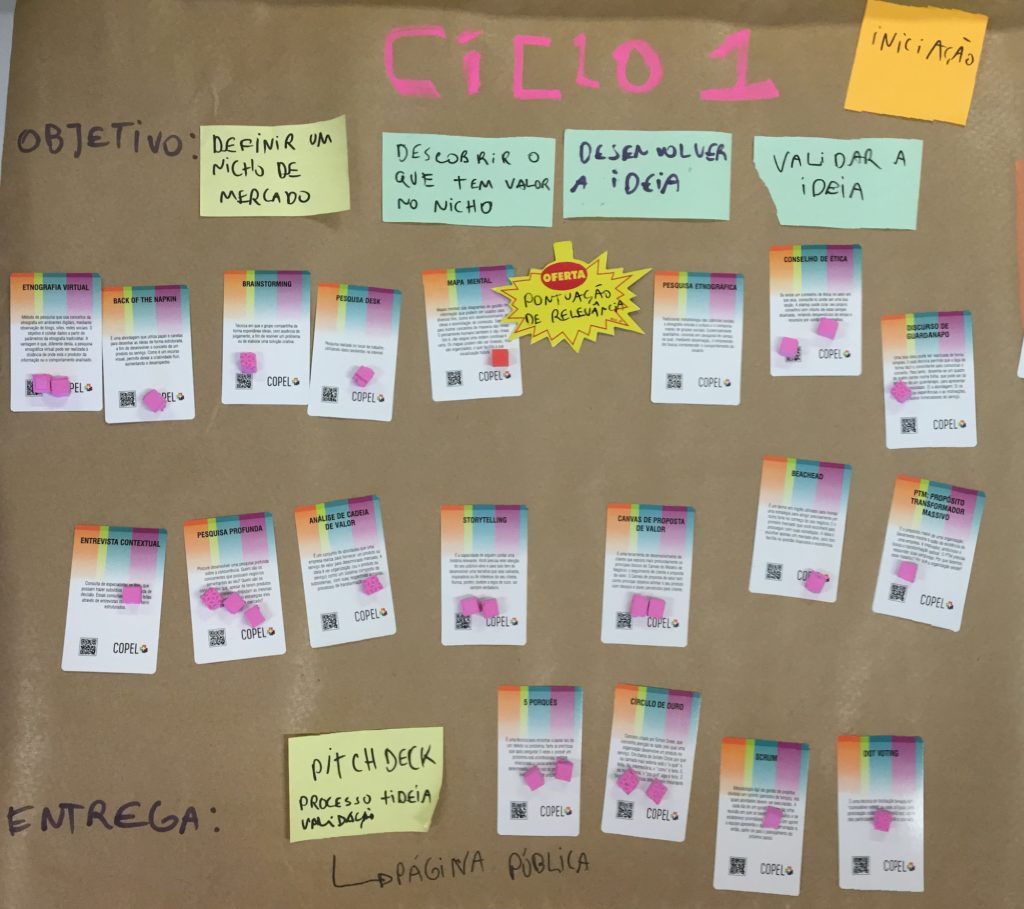
This card deck was designed with the participation of multiple people from the local startup ecosystem in Curitiba city, reflecting their knowledge of methods and techniques for overcoming the struggles entrepreneurs face in the discovery phase.
Besides offering the means to develop business ideas, Copel+ platform also included inspirational information about the problems the company wanted to be solved. Instead of presenting as clearly defined problems, these were presented as contradictory challenges, with known dilemmas and paradoxes that the company itself could not resolve alone. Instead of announcing a list of emerging technologies the utility company was interested in, such as IoT or drones, Copel+ announced six intricate challenges for the energy sector through a series of animations.
The six challenges were defined by specialists who already dealt with them in the company. Visual Thinking tools and Lego Serious Play supported their collaborative analysis and definition of the challenges.
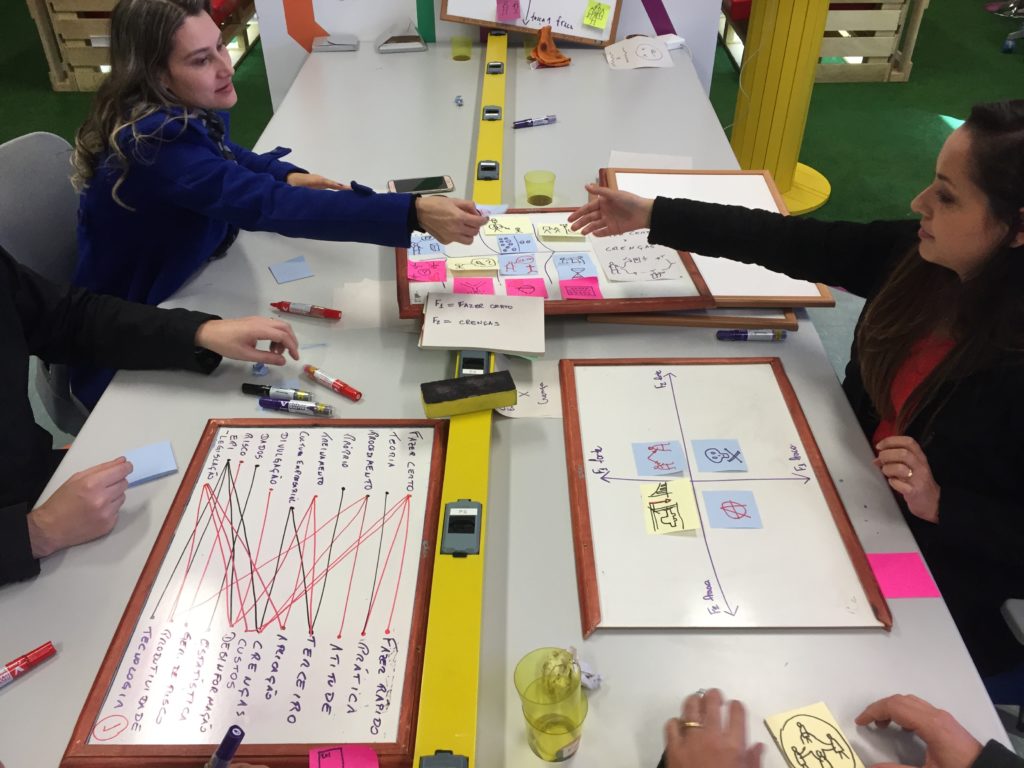
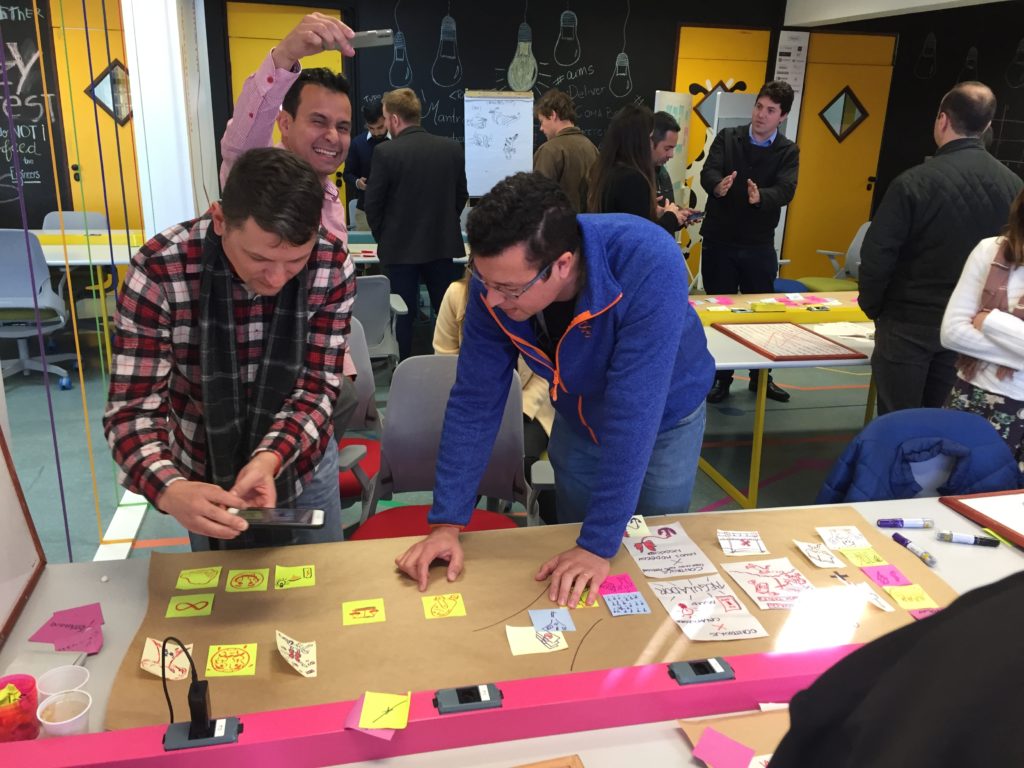
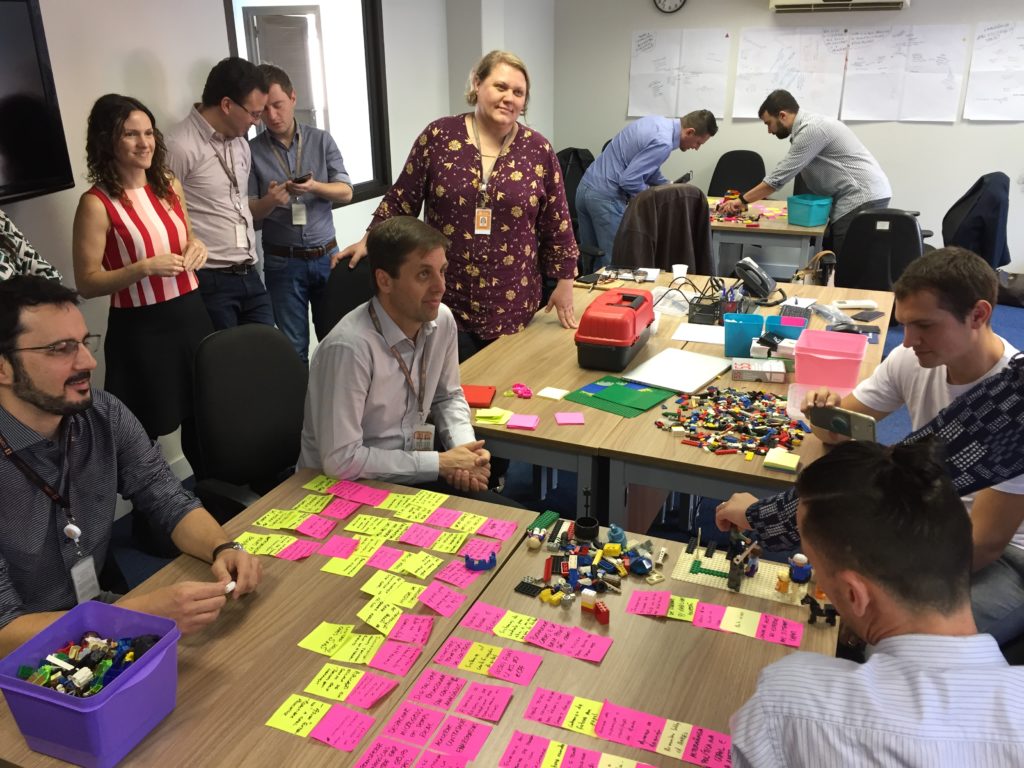
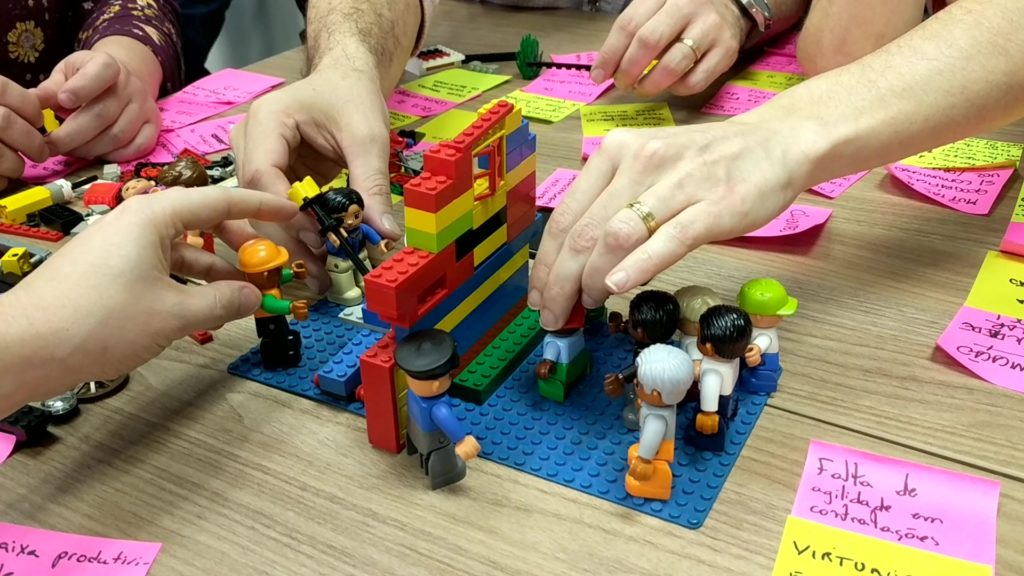
The platform results can be summarised through the open innovation funnel. 10 out of 264 startups which enrolled in the pre-acceleration program were selected to participate in the last acceleration program. Copel workers interacted with the startups as mentors, team members, and juries. More than 1000 students and 200 Copel employees participated in the program. The entire process took 18 months to complete.
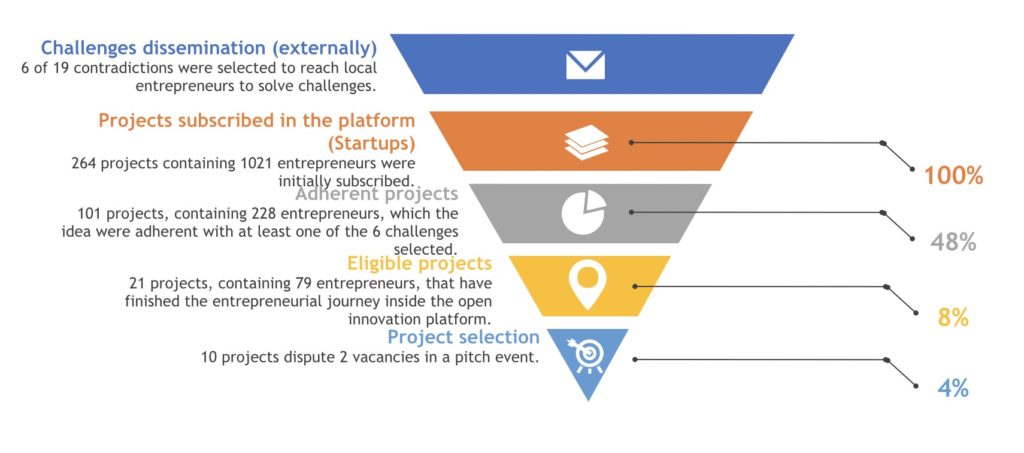
Despite generating business partnerships between Copel and the selected startups, the lessons learned from interacting with all these actors became the main outcome of the research project. Copel workers brought the design and startup techniques they learn by getting involved with Copel+ to their own internal innovation projects. The pictures below are from workshops organized by these workers on their own, strong evidence of organizational learning.
